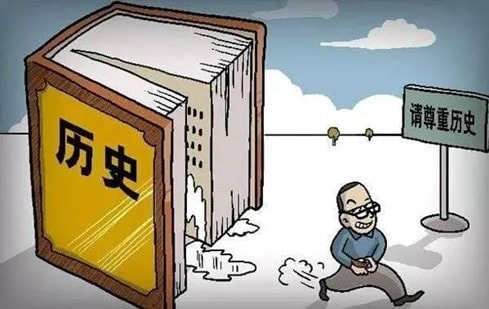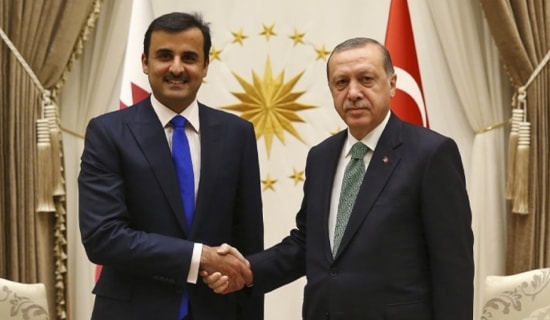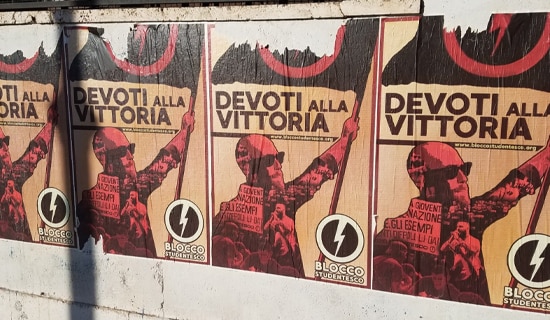On January 29, 2021, popular Chinese media outlet Yang Ming published an attack on "historical nihilists" – those who deny the Marxist-Leninist theory of historical progressivism toward the universal triumph of Communism. Authored by Zhao Jiang, the article has already been read over 280 million times.[1] Nihilism, derived from the Latin word nihil or "nothing," is broadly defined as the rejection of objective truth. Nihilism rejects institutions or society based on a claim to objective truth, and, as "nothing-ism," offers no positive alternative. The Chinese Communist Party views itself as the embodiment of a scientifically- and therefore objectively-based, historically inevitable process toward a Communist society to which no alternative is legitimate. This historical determinism rejects the human person's free will, which de-legitimizes the CCP's entire philosophical authority. Questioning threatens the very legitimacy of Party rule and Party leadership. Therefore, to the CCP, "historical nihilism" is a condescending term to attack those who raise such dangerous questions. In attempting to delegitimise criticism of its legacy and leadership, the CCP highlights the pernicious potential of historical revisionism, with the nihilism label to disqualify discussion of any alternative to Party rule.
The CCP's official reading of the Communist history of China is one of glorious martyrdom in advancing the Communist revolution. Any challenge to this version of events is derided as "historically nihilistic," and reliant on pseudo-intellectual arguments to forward an anti-CCP narrative.
Accordingly, Zhao contends in this article that criticism of China's human rights record is simply a form of "historical nihilism" aimed at "dispelling the beliefs of our Chinese nation". Zhao hints at two of the charges levelled by "historical nihilists" at the CCP, including that "the Chinese system is inferior to that of the West" and "the Chinese revolution is too radical", but stops short of identifying any specific examples.
The revisionist narrative of the CCP relies on selective celebration and censorship of its own history. The Party is vocal in its veneration of specific historical events, such as the "Long March," Deng's "Reform and Opening Up" and more recent accomplishments in poverty alleviation. However, it simultaneously forbids discussion of darker chapters of China's modern history, including the widespread starvation of the "Great Leap Forward," the violence of the Tiananmen Square Massacre, and mass incarceration of Uighurs in Xinjiang province.
Weaponizing the debate on national memory, the CCP has mounted a legal assault on "historical nihilism" in recent years. In June 2020, the National People's Congress in Beijing ruled that "defamation" of communist heroes and martyrs constitutes a civil offence. "Insulting or slandering heroes and martyrs" may now result in imprisonment for up to three years, criminal detention, public surveillance or the deprivation of political rights.[2]
In late February 2021, Chinese President Xi Jinping called, during a Party education campaign launch, for all CCP members to "unequivocally oppose historical nihilism."[3] Urging that CCP members should "develop an accurate understanding of Party history," Xi then cited the Party's revolutionary history and "brave spirit" as key sources of Party education.
Zhao claims that "historical nihilists" promote an unacademic idea that attempts to "invert cause and effect" and "white and black" through deceptive means. Rounding-off his critique, Zhao urges readers to be "vigilant, maintain introspection, and strengthen immunity" - lest they become "accomplices" of this ideology and support an anti-CCP narrative.
Zhao's comments expose the crux of the dichotomy in the CCP's world view. Asserting that the Party's revision of history is the only "accurate" version, the CCP is attempting to create a new normative view of history. Accordingly, this claim renders all other versions of history "inaccurate," counter-factual, and intolerable in Communist China.
Below is Zhao's article, titled "Historical Nihilism, Under The Guise Of Human Rights, Tells So Many Lies That It Even Believes Itself":[4]

An "historical nihilist" urinates on a book labeled "History," adjacent to a sign saying "Please respect history." (Source: Sohu.com)
'We Can Minimize The Possibility Of Unwittingly Becoming Accomplices To Historical Nihilism'
"There are some words in this world that seem reasonable upon hearing them for the first time, but we can't help but ponder them, because these words are all fallacious. For example, those words that seem to endorse human rights, but actually deviate from the masses, are one of historical nihilism's big 'routines.' If we are not careful, we may be fooled.
"Marx once said: 'history' is not, as it were, a person apart, using man as a means to achieve its own aims; history is nothing but the activity of man pursuing his aims.' That is to say, human history is essentially a process of practice, and the masses of the people are the main body of historical practice and the decisive force in promoting the development of social history. However, historical nihilism claims that history is the product of spiritual movement, which is the inversion of cause and effect, and even the inversion of black and white.
"'Human rights' is a good term. Being human, of course one has the rights they deserve. But historical nihilism regards 'human rights' as a guise that can be used, and one-sidedly emphasizes that historical subjects should advocate for unlimited 'freedom,' 'human rights,' 'to have a good life' and 'to live in the present.' Such a tune is to put their paranoid demands above the interests of the people, which is exactly the opposite to humanity and human rights. Because how can people who only care about their own human rights, while harming the human rights of others, be true advocates of human rights?
"Historical nihilism is just like this. It considers historical subjects from a paranoid and fictitious standpoint. Although it is right, the argument is based on their own preconceived abstract views, and the conclusion is naturally wrong. For example, for the great practice of Chinese revolution and construction, their position is not the country and the people, nor is their purpose to put forward constructive suggestions to make our country and nation better. Firstly, they use so-called 'Transcendentalism' to make abstract presuppositions, and then take these as the yardstick to measure the values of historical development, drawing incorrect conclusions that 'the Chinese system is inferior to that of the West' and 'the Chinese revolution is too radical,' completely deviating from the subjectivity and specificity of history.
"Historical nihilism under the guise of human rights really speaks so much nonsense that it even believes itself. They think that if they tell a lie a thousand times, it will become the truth. Many of their actions, which look as if to be analyzing and making arguments, are actually aimed at dispelling the beliefs of our Chinese nation. And thus it can be seen that they have sinister intentions.
"History has never been an epic of linear progress, but a continuous upward spiral. The trajectory of history in ancient China had long periods of division, and long periods of cooperation, that's it. Confronted with this type of historical pattern, it has become the material of historical nihilists to cover up systematic historical facts with fragmented data. They tried in vain to cover over the entire memory of the Chinese nation with their personal views, and tried to replace the existence of revolutionary struggle with subjective nihilism. On the surface, they say that they are 'objectively evaluating' and speaking with 'in-depth understanding.' These pretexts are to cover up their passionate language and their pseudo-academic tone. As long as they confuse some audiences who are not familiar with the world or do not know the truth, they will think that they have succeeded.
"Therefore, in the face of the ubiquitous and ubiquitous tricks of historical nihilism, each of us must go to any length to have some ability to judge the truth. If we are always vigilant, maintain introspection, and strengthen immunity, we can minimize the possibility of unwittingly becoming accomplices to historical nihilism."




